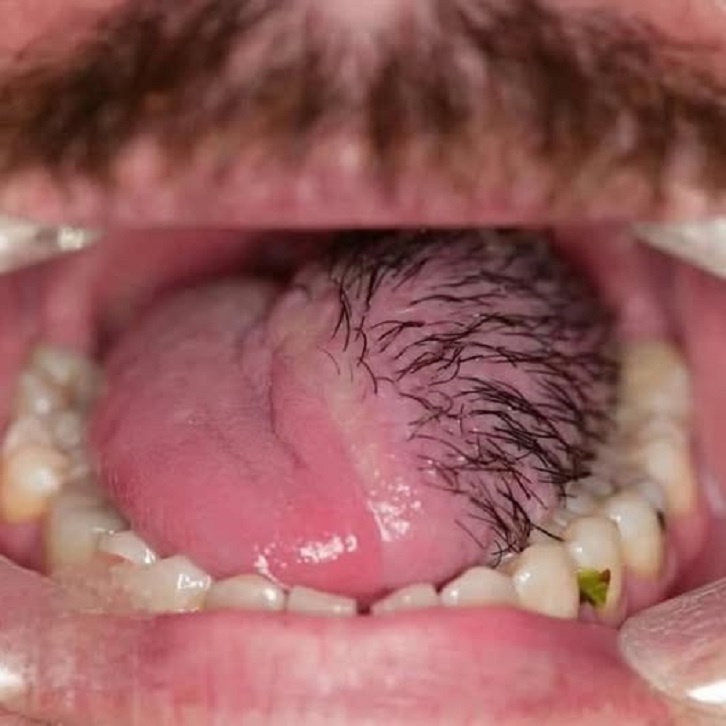Tongue-related fungal infections, most often triggered by an overgrowth of Candida fungus, are more common than people realize and can be the result of several underlying factors that disrupt the natural balance of microorganisms in the mouth. One of the biggest contributors is poor oral hygiene, since failing to brush or clean the tongue regularly allows harmful bacteria and fungi to multiply unchecked.

Another frequent cause is the recent or prolonged use of antibiotics. While antibiotics are prescribed to fight bacterial infections, they can also wipe out beneficial bacteria that normally help keep fungal growth under control, creating the perfect environment for Candida to thrive. In addition, individuals with weakened immune systems—whether from chronic illness, medications, or stress—are more vulnerable to fungal overgrowth, since their bodies are less able to maintain a healthy microbial balance. When Candida takes hold in the mouth, the tongue often shows some of the earliest and most obvious signs that something is wrong. One common symptom is a smooth, red, and glossy tongue that may look inflamed and feel tender.
Many people also describe a persistent burning sensation, which tends to get worse when eating spicy or acidic foods that irritate the sensitive surface even further. In some cases, this type of tongue inflammation can also signal an underlying health condition such as iron-deficiency anemia. When the body does not get enough iron, fatigue, weakness, and other symptoms may appear alongside the changes in the tongue, making it important not to dismiss these signs as minor or cosmetic. Another common manifestation of fungal infection is a thick white or yellow coating on the tongue, known as oral thrush. This coating often scrapes off in patches and may leave the tongue raw and sore underneath.
People with thrush often complain about discomfort, a constant bad taste in the mouth, or bad breath that does not improve even with regular brushing. The taste itself is sometimes described as metallic, bitter, or unpleasantly dull, making meals less enjoyable and affecting the overall eating experience. While both the red, inflamed tongue and the coated tongue look different, they share another frustrating similarity: altered taste sensations. Food can lose its flavor, taste abnormally bitter, or take on a metallic edge that ruins appetite. When eating no longer feels satisfying, it can lead to a reduced interest in food, lower nutrient intake, and, in prolonged cases, poor nutrition that affects energy levels and well-being.
These disruptions can create a cycle where poor health makes the infection worse, and the infection further undermines overall health. The good news is that there are practical steps people can take at home to help manage and prevent fungal overgrowth. Brushing the tongue gently twice a day with a soft toothbrush can remove buildup and reduce the fungal load in the mouth. Rinsing with saltwater is a time-tested method, as the salt helps create an environment that is less favorable for fungal growth. Similarly, using a baking soda rinse can help restore a healthy pH balance in the mouth, making it harder for Candida to thrive. These remedies are simple, inexpensive, and accessible for most people, making them an effective first line of defense. Beyond immediate remedies, prevention plays an essential role in reducing the risk of tongue fungal infections.
Practicing consistent oral hygiene by brushing teeth and cleaning the tongue daily is the most important step. Staying hydrated supports natural saliva production, and saliva is the body’s way of keeping fungal overgrowth under control. Diet also makes a significant difference—excessive sugar and yeast-rich foods can act as fuel for Candida, encouraging it to spread quickly, so cutting back on sweets, baked goods, and alcohol can help. People who are prescribed antibiotics can benefit from incorporating probiotics into their routine, whether through yogurt or supplements, since probiotics help replenish healthy bacteria that keep fungi balanced.
For individuals with weakened immune systems, whether due to chronic disease, age, or medication, it is important to consult with a healthcare professional for personalized care, as they may require additional treatment or monitoring to prevent complications. Ultimately, tongue fungal infections may start small but can quickly become a source of pain, discomfort, and even nutritional problems if left untreated. Recognizing the signs early, taking simple preventive measures, and seeking professional advice when necessary are the best ways to manage this condition.
Paying attention to oral health not only protects against fungal overgrowth but also provides insight into overall health, since changes in the tongue can sometimes signal deeper medical issues. By staying consistent with oral hygiene, making mindful dietary choices, and using home remedies when needed, most people can prevent Candida from taking over and keep their mouths healthier, fresher, and more comfortable in the long run.





